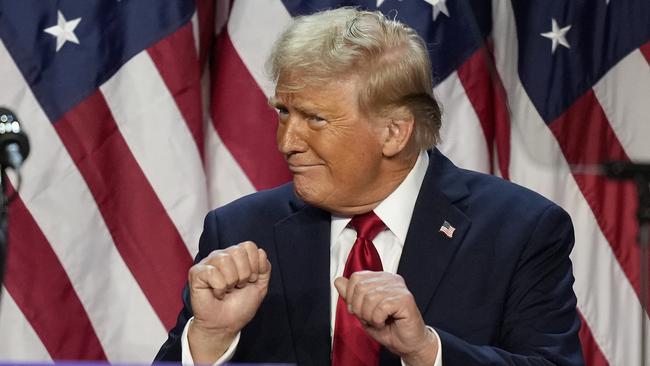Trump election win: What Aussie farmers need to know
For months Donald Trump has promised tariffs should he win the election. Now that he has, what does it mean for Australian agriculture?
For months Donald Trump has promised that should he win the presidential election he would implement tariffs on all products coming into the United States.
Now that he has won, when could those tariffs be implemented, and what could they mean for Australian agriculture?
“If I look at Trump’s statement it’s all about industrial policy … so (I expect tariffs) will initially probably be more on the mechanical or building side of things rather than impacting the livestock and consumer market,” general manager of RaboResearch Australia and New Zealand Stefan Vogel said.
“We feel like it’s easier (for him) to implement the import duties rather than any tax cuts that he has proposed. The duties are likely to come, the question is whether they will come on everything.”
Australia, along with Brazil, has been supporting a declining US beef herd for the past few years following widespread drought in cattle-producing regions. If tariffs do come for beef, Mr Vogel said it would not be ideal for either side of the Pacific.
“Right now beef prices for US producers and consumers are already very high, so in this situation an extra import duty on beef would not be ideal for either of them. It would also be bad for us in Australia, because it makes our beef less competitive against local beef,” he said.

The herd rebuild is taking longer than expected, with US farmers selling their cattle to slaughterhouses for high prices now rather than leaving them in the field to help rebuild numbers, and risking lesser prices in coming years.
As a result, Australian beef producers may be called upon to help supplement the herd for a bit longer.
For grain producers, GrainGrowers policy manager, trade and supply chains Annabelle Mactier said that while the US itself wasn’t a massive market for the Australian product, the flow-on impact of any tariff decision could be significant.
“We really rely on a free and open trading environment, and we’ve already seen during (Trump’s) first administration that the tariffs sparked retaliatory efforts from other countries and had massive impacts,” she said.
Ms Mactier said any potential alignment between the US and European Union on agricultural chemical standards was something Australia also needed to be wary of.
“We haven’t seen this precedent (before). We don’t understand the full ramifications of (a possible alignment) but it’s definitely something on our radar.”
Robert F. Kennedy Jr. has suggested he will have a significant influence on American agriculture policy in the event of a Trump win, and his negative view on agrochemicals will be one to watch.
Finally, Trump has said ending the Russia-Ukraine war would be a priority for his administration, with any peace deal likely taking out any remaining risk premium in global wheat markets.




